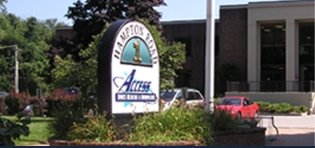Biologics and Injections
We offer revolutionary procedures to help patients heal quickly and effectively, including:
- Platelet-rich plasma therapy – This procedure uses the patient’s own blood chemistry to heal tendon and ligament injuries, as well as osteoarthritis.
- PalinGen® Flow – This regenerative medicine technique uses minimally manipulated amniotic tissues to heal and repair injuries and wounds.
Medications
To manage pain throughout recovery, we often prescribe patients with anti-inflammatories, acetaminophen, muscle relaxants, topical medications and other types pain relievers. Prescription of medication is most often used in combination with other non-surgical orthopaedic treatments.
Our doctors are committed to combating prescription medication abuse, especially when it comes to the opioid epidemic. We make every possible effort to limit prescription doses and offer alternatives for pain management.
To enforce a strong belief of providing our patients with choices, we offer a full range of non-surgical orthopaedic options at all our locations. We also have walk-in clinics and same-day appointments available for quick, efficient care.

